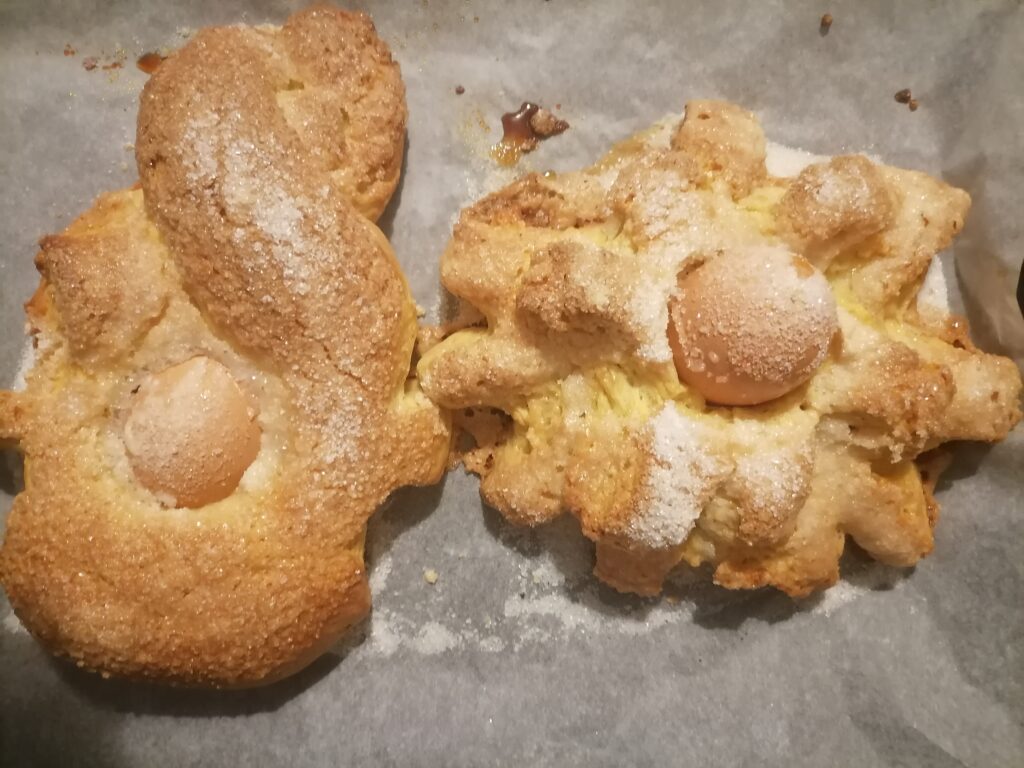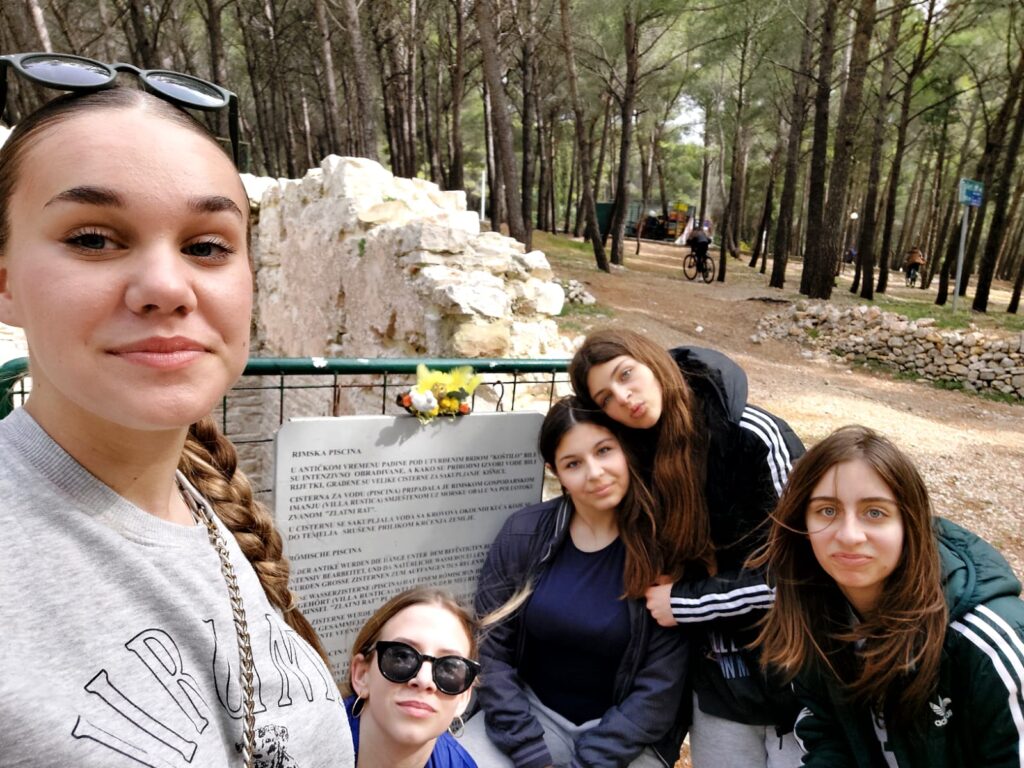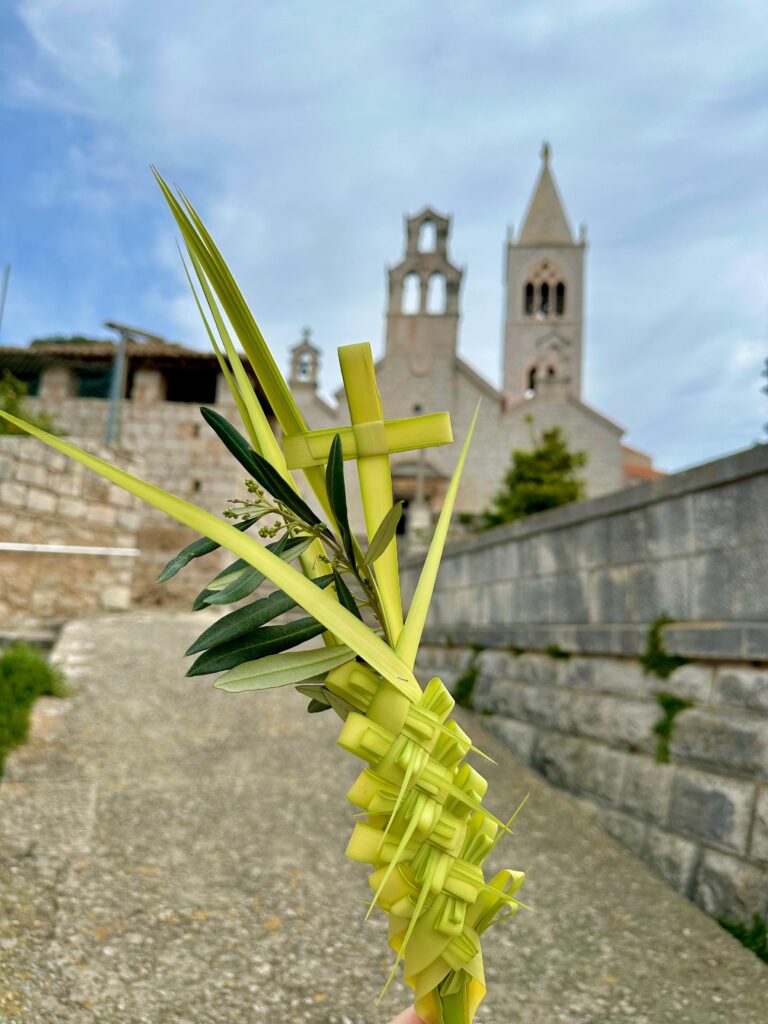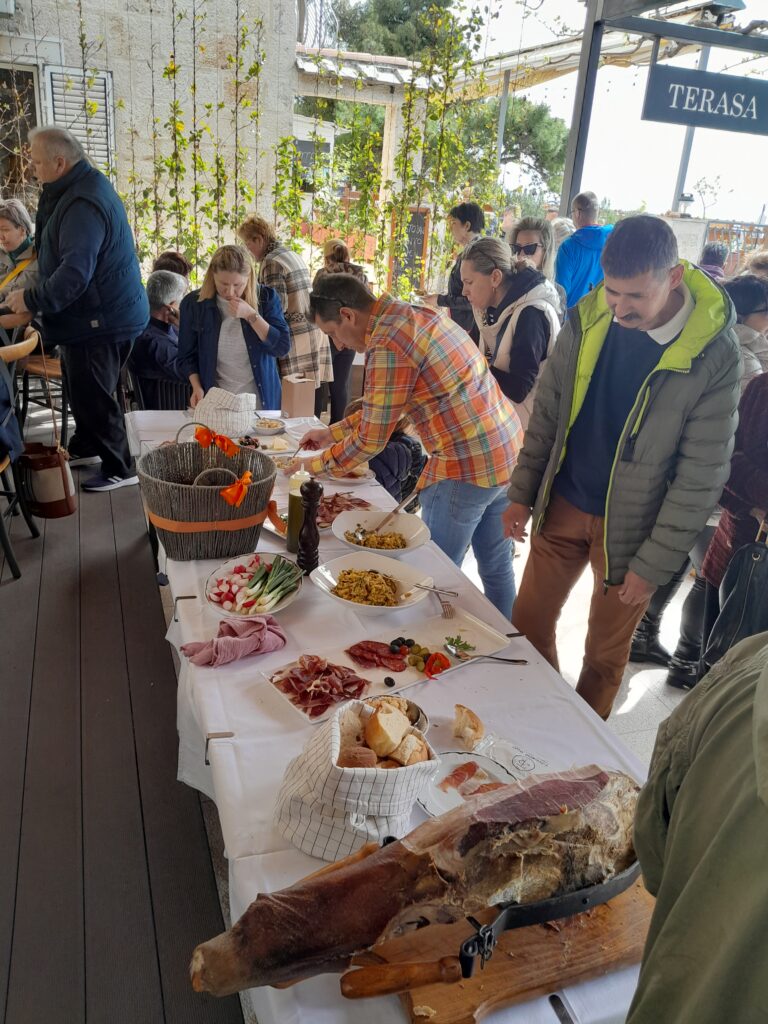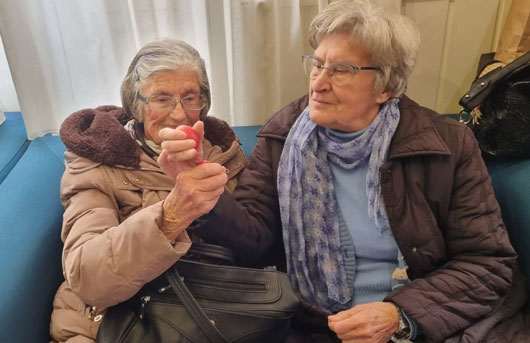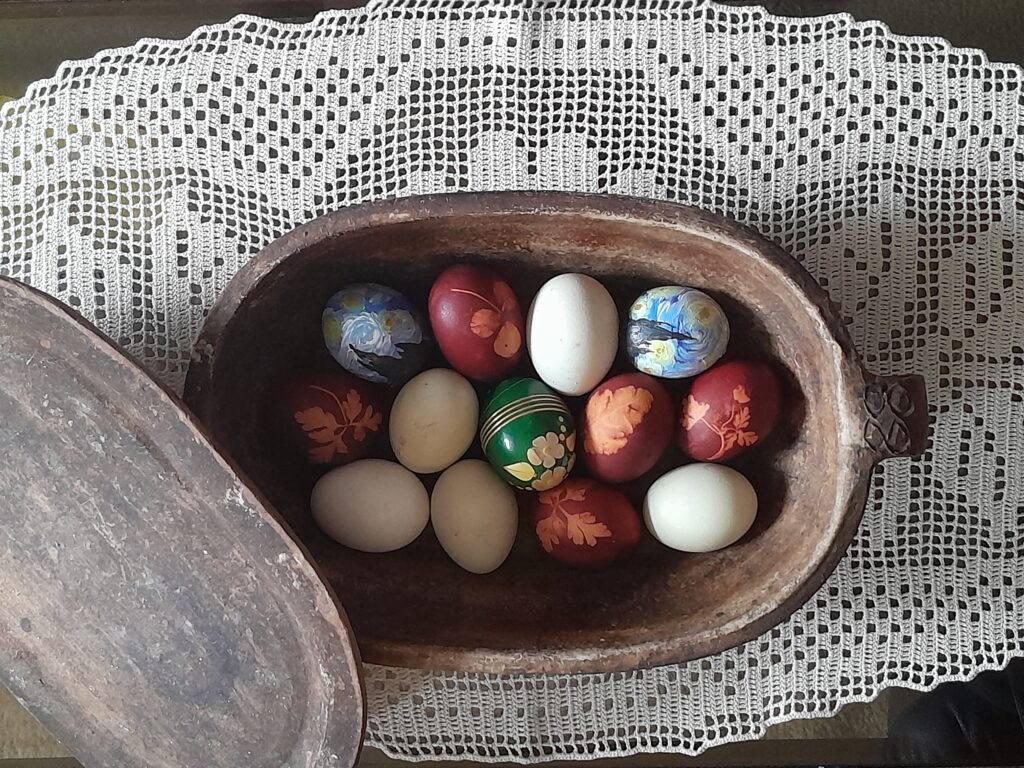After the carnival days come Lent, the forty-day preparation for Easter. The most important holidays of Lent are Palm Sunday and Holy Week. Palm Sunday is the Sunday before Easter and is of great importance to the people of the island of Brač. Church rituals at that time exuded a centuries-old tradition, and the altars in the church are also specially decorated for the occasion. On that day the olive branches are blessed. In addition to olives, flowers as well as sprigs of lemon, orange, laurel, and rosemary were blessed. One blessed twig was left in the house, and the others were taken to the fields to ensure a good harvest. In the past, young men used to steal flowers for their girlfriends before Palm Sunday, and on Palm Sunday they also gave them flowers or twisted and decorated palm branches. F
rom the island of Vis, a palm branch was procured, sometimes one meter long, they braided it beautifully and decorated it, made a wreath from it or cut it and made a cross on top with a bouquet of flowers tied with a ribbon. In return, girls baked them big garitula, a cake in which 15-20 eggs were inserted into the twisted dough, and they gave it to them for Easter.
On Palm Sunday, the household members washed themselves with water in which freshly picked spring flowers, most often violets, had been placed the day before. This custom is still preserved on the island of Brač, and besides having a deep spiritual and traditional meaning, it connects us with the faith and heritage of our ancestors. On Palm Sunday, the evening before the holiday, holy masses are celebrated in churches, and then local olive oil is blessed. Olive oil is an important part of the cultural and gastronomic heritage of the island of Brač, so this special moment combines faith, tradition and the beauty of nature. Garitula were mostly given to those who came to congratulate Easter or to children from home. The dough was kneaded differently for male and female child. In addition to this, sweet round bread called pinca or sirnica was also prepared. Housewives still dyed eggs for Easter, in earlier times mostly red and yellow, and prepared meat meals.
On the Friday before Easter, there was a procession early in the morning. Usually, the inhabitants of one place went in procession to another and then returned to the village by another route. In the procession, they carried lighted candles and several crosses. On Good Friday, fasting was obligatory and only boiled or baked fish and salted sardines were eaten. No heavy work was done that day, and special care was taken not to poke the ground with something sharp. On that day, butchers were not allowed to slaughter cattle for Easter. It was considered a sin to knead bread on Good Friday because it was thought that there would be blood in it. It was believed that on that day one would get as much blood as red wine was drunk, so the tellers say that some prepared cod and greens in order to drink more, and drank more than 5 liters of pure wine without water. All this was preserved from oblivion by Josip Miličević in the article: Folk life and customs on the island of Brač in the Brač anthology no.11 (Supetar; Assembly of the Municipality of Brač).
For the same reason, an Easter festival is organized in Bol on Easter Monday, where a traditional Easter breakfast is served. Tuconje jojiman competition (egg beating) is organized for young and old to remember this old game that is traditionally played on Easter morning. A competition for the best pinca is also organized. This year, a competition to find Bol’s treasure was organized for the youngest, who searched for it in 13 locations with the help of riddles about Bol’s landmarks. The event was organized by the Tourist Board of the Municipality of Bol, Udruženje ugostitelja Bol, and Hrvatska čitaonica Bol for all generations, locals, and guests who socialized with music, good food and drink.
